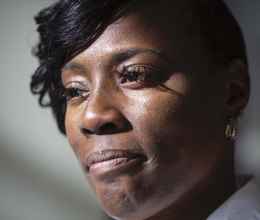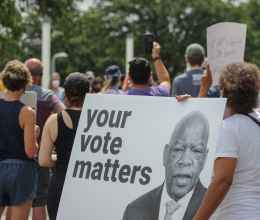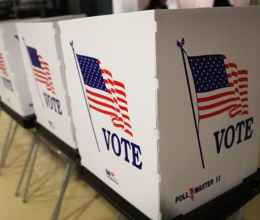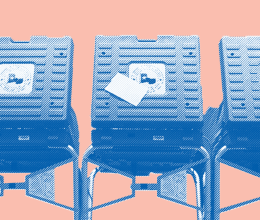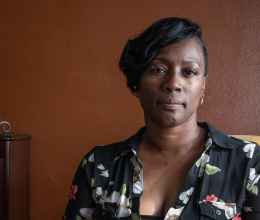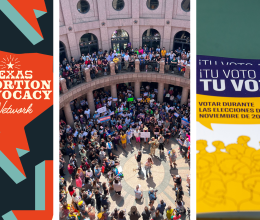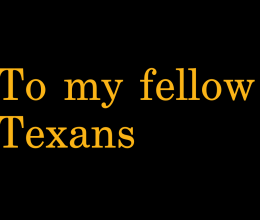
Our fundamental right to vote is under attack at the Texas Legislature, and businesses and corporations are stepping up to join the masses of people fighting to protect the foundation of our democracy.
Companies like Dell, Microsoft and American Airlines have spoken out for voting rights in Texas by making public statements opposing voter suppression in bills proposed by the Texas Legislature this session. Others like PayPal, Salesforce and Apple have sent letters to lawmakers that have been read at committee hearings and circulated at the Capitol.
New polling shows that these kinds of statements are a win-win for voting rights and businesses. According to the Civic Responsibility Project, “overwhelming majorities of registered voters across the U.S. expect companies to speak out on voting rights, would look favorably on companies that support those rights, and would consider buying a product or using a service from a company that voiced opposition to restrictive voting laws.”
Our lawmakers listen to business. Microsoft has 1,500 Texas-based employees. Its statement on House Bill 6 – one of many egregious voter suppression laws being pushed – says “we are concerned that HB 6 could criminalize honest mistakes made by volunteer poll workers, which would give us pause before encouraging our employees to volunteer and serve in those roles.” Lawmakers who’ve championed the “Texas miracle” of attracting big business to the state should think twice before enacting laws that would make it less desirable for big business to locate employees here.
Publicly and privately, companies are expressing concern about the problematic nature of the bills. The legislation would increase criminal penalties for participating in elections as an election official, poll worker, volunteer, voter assistant, or voter; give partisan poll watchers free rein to disrupt voting despite their track record of intimidating Black and Brown voters; eliminate options that made it easier to vote, like extended early voting hours and drive-through voting; make it more difficult for eligible voters to apply to vote by mail; and make it more difficult for anyone who needs help voting, like people with disabilities, to get the help they need.
Companies aren’t fooled by the argument that these bills are a solution to election problems in Texas. Out of 94 million votes since 2005, only 174 people have been prosecuted for alleged voting offenses (that’s 0.00000185% of all votes cast). The overwhelming evidence is that election-related voting offenses are miniscule. The real problem in Texas is that it’s too difficult to vote. These bills only make that problem worse.
More companies should be speaking out about the immediate threats to voting rights at the state level, but some are notably silent, preferring to reserve their support for federal legislation like the John Lewis Voting Rights Advancement Act. Federal voting rights legislation is a must-do. Companies are right to work with the Biden administration to achieve the goals of the act, which would set standards and reinforce protections for any election where a federal candidate is on the ballot. Even so, those companies should not ignore the threat to voting rights at the state level, where bills like HB 6 still would negatively impact voters casting ballots in state or municipal races.
Companies like AT&T, Southwest Airlines and Google have chosen to make broad national statements but have remained notably silent on severe threats to voting rights in Texas. That’s too bad. While the governor and lieutenant governor have been clear about their anti-business approach, the speaker of the Texas House has indicated that he wants to hear from companies. They should accept the invitation and speak up before it’s too late.
At the ACLU of Texas, we’ll continue speaking out against HB 6 other bills designed to limit voter participation, especially among disabled Texans and communities of color. Join us by emailing your State House Representative to tell them to say no to attempts at criminalizing and suppressing the vote in Texas.
